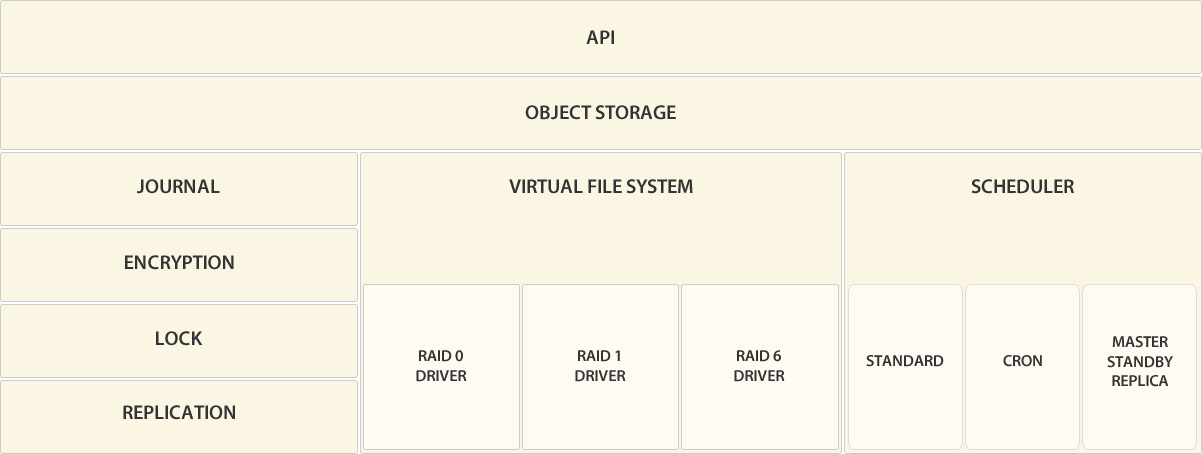Odilon Architecture
This article is about the general architecture of the Odilon server. It is of potential interest to developers but is not necessary to use the product.
Odilon has three hierarchical layers (API, Object Storage, Virtual File System) and about a dozen general services used by them (Scheduler, Concurrency Control, Journal, Cache, Encryption, etc.).

Scheduler
The Scheduler is a persistent job queue processor. It can manage multiple job queues, each with a specific execution policy (normally FIFO: First In, First Out)
and semantics on job failure (ie. retry N times and continue, block and retry until the job can complete successfully, ...). The Scheduler persists jobs on the Virtual File System.
A Scheduler Worker is the main component of the Scheduler.
It is a job queue with its' own policies and Thread pool to process the queue. It creates a dependency graph with the jobs that are to be executed in parallel in each batch in order
to warrant that after the execution of the batch the end result will be equivalent to a sequential execution.
The main scheduler workers are:
- CRUD operations after the Transaction is committed by the Journal Service.
- Cron jobs that execute regularly based on a Cron expression, they are non blocking.
- Executes asynchronous replication to the standby Odilon server. This worker will not be started if there is no Standby server connected. The semantics of the replica queue is strict order, If a job can not be completed the queue will block until it can be completed.
Journal
The default method by which Odilon implements atomic commit and rollback is a Rollback Journal. When a thread wants to execute an operation, it first records the original unchanged content in a rollback journal(Java source code).
Encryption
Odilon keeps objects encrypted (Encryption at Rest) using modern algorithms such as AES GCM-SIV.
Odilon uses envelope encryption (i.e. encrypting a key with another key), every object is encrypted with its unique key and the key is encrypted by Odilon key management layer or by a (Key Management Server). (Java source code).
Concurrency Control
Odilon uses a lock-based resource protection on Read and Write provided by the Lock service (Java source code).
Replication
Service that asynchronously propagates operations already completed (after commit) to the Standby server (Java source code).